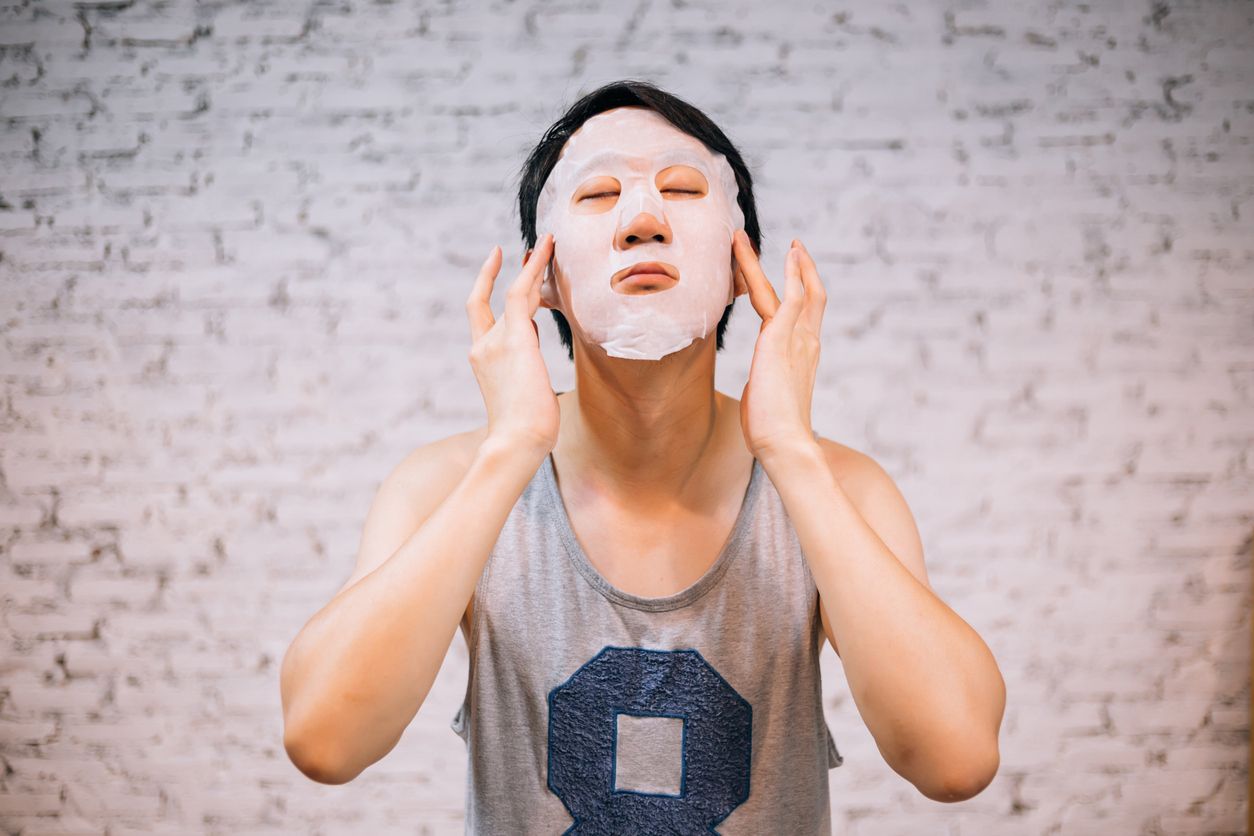
How Asian men’s beauty care is shaping conception of masculinity and gender-neutral marketing
Do a quick online search for “Most attractive Asian celebrity” and one cannot miss the many Korean singers and actors that pop up. From BTS’ Jin – or any of his six other bandmates – to actors Lee Min-ho and Lee Dong Wook, the image of the well-groomed male Korean celebrity with skin that women would kill for is de rigeur. Instead of the Western image of rugged masculinity that often features facial hair, male Korean celebrities are often described as ‘pretty boys’.
These men also wear discernible makeup, so much so that they are changing the concept of “masculinity” and societal norms about gender identity. The influence and popularity of Big Bang’s G-Dragon, whose fashion sense could be generously described as unconventional, are signals to beauty companies to monitor the trend or be left behind. The British Chamber of Commerce in Korea noted:
“‘Hallyu’, or the ‘Korean wave’, refers to the increase in popularity of Korean culture throughout the world. The influence of their films, songs, dramas, and fashion can be found anywhere from the streets of Tokyo to Paris. Keen to know what the latest trends are every year, hundreds of thousands of tourists, mainly from China, visit Korea.
“A large proportion of these tourists come with the primary purpose of purchasing high-quality beauty products that are popular within Korea. As a result, UK companies that successfully enter the market will find that the brand awareness for their products will spread far beyond the borders of the country. A successful product launch in Korea can help heighten the chances for success throughout the region.”
No More Uncle, lots of skin care
Once an afterthought to the women’s beauty market, the size of the global men’s beauty care industry was estimated to be about US$141 billion in 2020. This market, which includes men’s bath and shower, deodorant, skin and hair products, was expected to reach US$183 billion by 2027, making it one of the fastest growing industries in consumer marketing.
Euromonitor predicted that the region of greatest growth for the global men’s beauty care industry would be Asia Pacific. If Asia’s CAGR of 8.1 percent continued beyond 2021, it would most likely become the biggest men’s beauty care market in the world, displacing Western Europe, which was predicted to have a much lower CAGR of 3 percent between 2015 and 2020.
For global cosmetic companies, this trend would have significant implications for planning for future growth not only in terms of demographic segments (e.g., by gender and age) but also by region (e.g., shift to Asia).
One such demographic segment is “NOMU”, which is short for “No More Uncle” (노무족) in Korean, representing men wanting rid of the derisive “uncle” or ajushi (아저씨) tag that serves as a euphemism for old or unfashionable. Whereas before, NOMUs attempted to be trendy just with clothing, by the turn of the century they were turning more and more to beauty care. They used skincare products and went to facial spas, where demand by men had increased over 30 percent between 2012 to 2014.
MK magazine, a major Korean daily, offered the following checklist to gauge whether one is a NOMU (must answer “yes” to five or more items to be classified as NOMU):
- I care about my looks.
- Having an interest on many different things helps in my self-development.
- I try actively to communicate with younger generations.
- I am above average in taking risks in fashion and beauty care.
- I can easily reveal my tastes and that affirms my individuality.
- I don’t deliberately try to stand out like young people but try to be different.
- I become nervous if I do not use social media at least once a day.
- I access news more through mobile phones or an iPad rather than via conventional media.
- Work is important but not as much as time spent with my family.
Gender-neutral marketing?
The expansion of the men’s beauty care market into products such as makeup may be a sign of a much broader paradigm shift in how marketers should approach gender. “Gender Neutral,” “Gender Fluid” or “Non-Binary” marketing has become an issue across many industries.
Trends and preferences in beauty among consumer segments like gender-neutral Gen Zs or Asian men yet again provided proof that stereotyping in marketing could limit growth opportunities. Thus, companies need to realign their “Noon Nopi” (literally means “eye level” in Korean but could be a metaphor for the need to have a correct and evolving consumer viewpoint) to not to lose out on this increasingly important market.
This is an adapted version of the SMU Case, "'No More Uncle': Asian Men’s Beauty Care in the Forefront of Gender-Neutral Marketing". To see the full case, please click on the following link: https://cmp.smu.edu.sg/case/5496.
Follow us on Twitter (@sgsmuperspectiv)